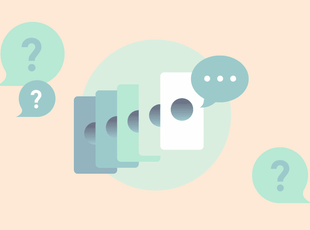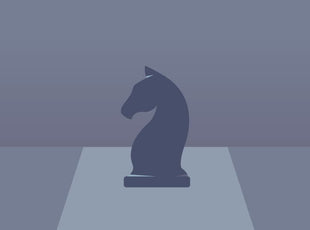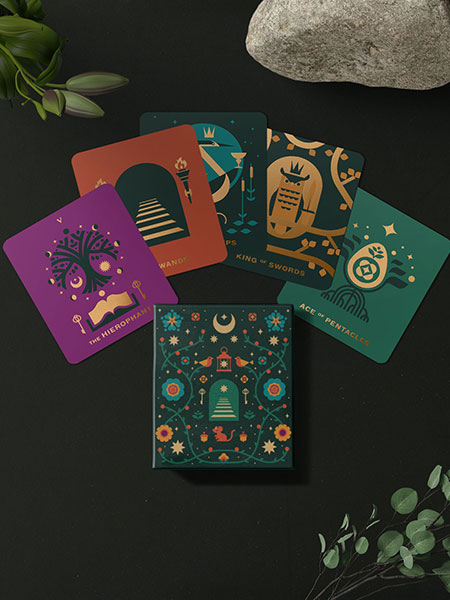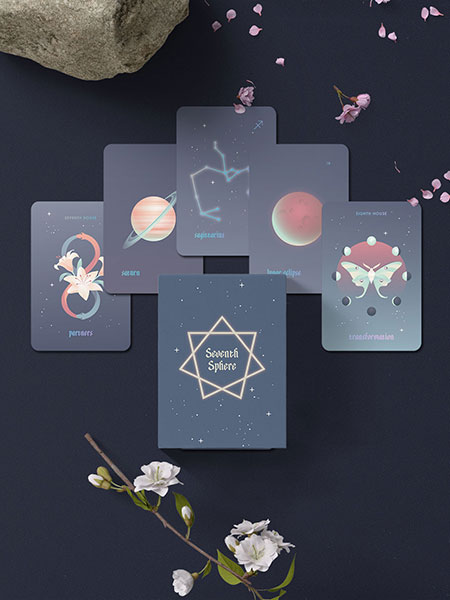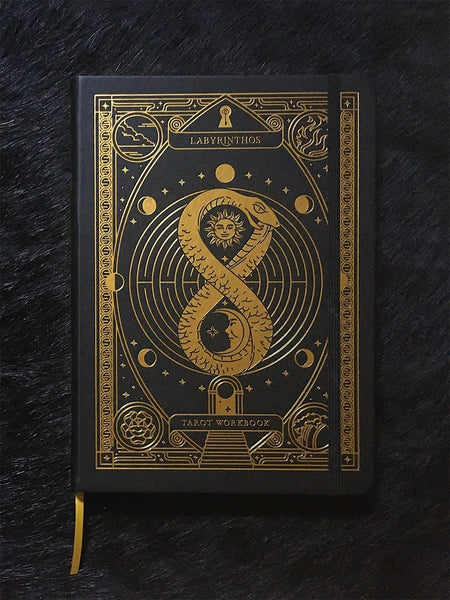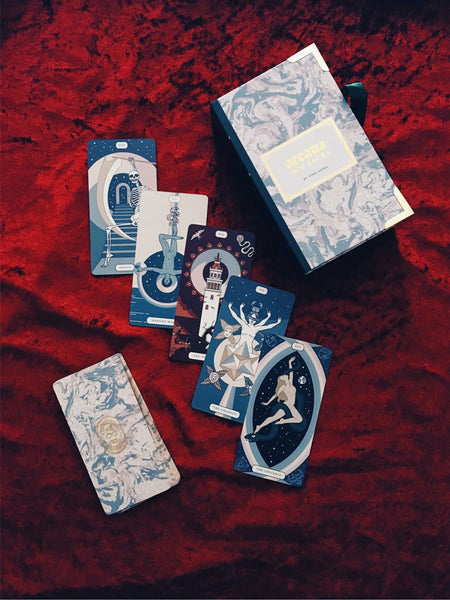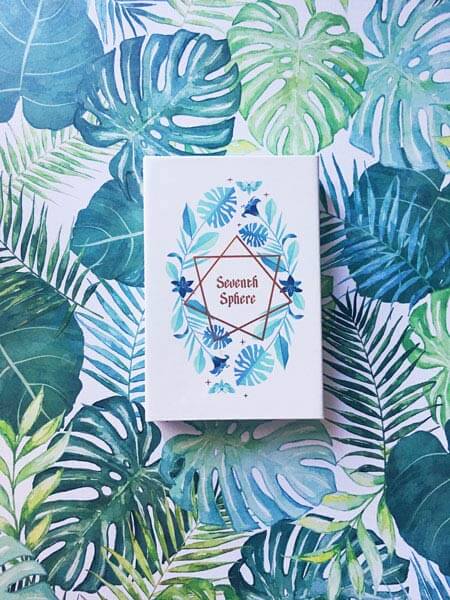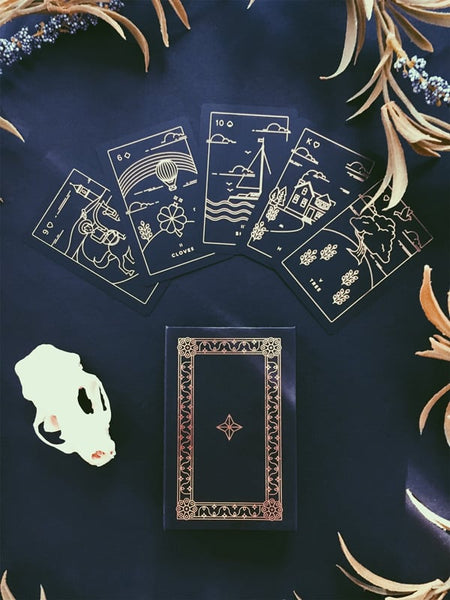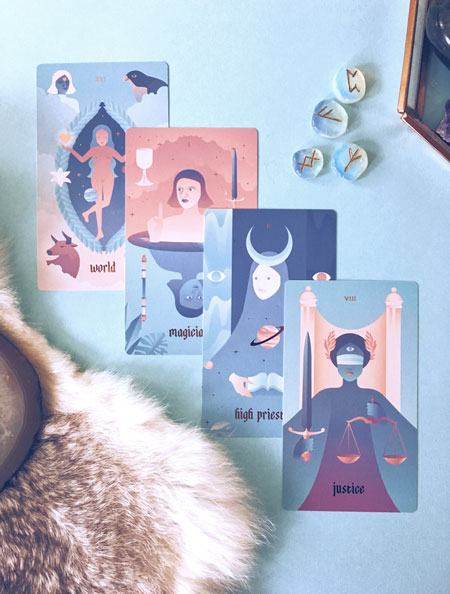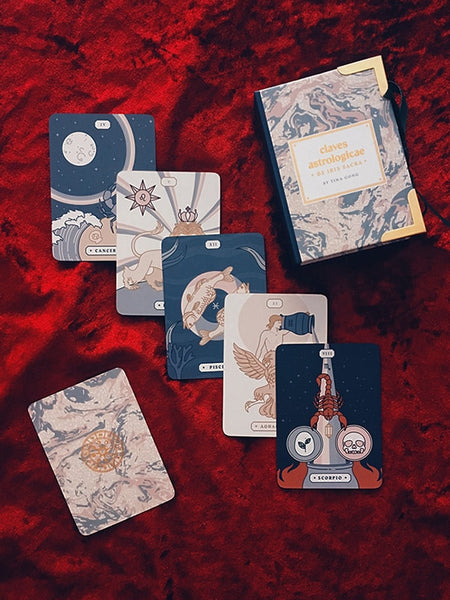✦ ✦ ✦
How to Read Lenormand Card Combinations
Published
Continuing on our series of exploring the Lenormand, we’re going to take a closer look now at the basic unit within this system - the two card combination. You’ll see these combinations being used across the spread many times, each of which will add an additional layer to the meaning of the reading, or another chain in the events.
Lenormand Card Reading as a Beginner
Just a quick reminder, that although this series will serve as a general guide for getting started to Lenormand reading, as you develop your skills as a reader, don’t be afraid to deviate from tradition. You as an individual will find that certain methods will reveal to you clearer messages, while others will fall flat. This is all a part of developing your skill set! What makes all readers unique is their choice of interpretation - we do not have to stick to dogmatic rules, but rules sure do help out when we’re just starting as a beginner.
Syntactical Structure within Lenormand Cards
If you’re starting to learn how to read Lenormand cards while coming from a tarot background (like me!), you’ll soon see that the two systems possess very distinct ways of approaching the cards which are at odds with each other and can confuse the person trying to cross over from one into the other.

What sets Lenormand cards apart from most other cartomancy systems is its reliance on card combinations. Instead of sticking to a rigid structure of spreads, positions and individual card meanings, Lenormand cards are read in pairs or strings. Each card is treated as a word, a pair of them as a simple phrase, a string - a sentence. Most commonly, the first card is taken as a noun (or a subject) and the one behind it an adjective (or modifier), following the pattern of Romance languages (the system is at least in part French, after all). This can be confusing at times but if you commit to it, it will soon start making sense and giving results.

Said results may be very literal, specific, odd, surprising, something humorous, but also exceptionally accurate. A House and a Dog may mean a family pet or a friend's house depending on their order.
Start Learning Lenormand
Our email course is filled with easy to read guides, worksheets, and more. Plus, get a link to our Lenormand app!
An Structural Approach to Lenormand Card Meanings
As a linguistics major when I was in college, I found it delightful to find reflections of the syntax and grammar within the Lenormand. As you work with the cards, you’ll start to see that each card has different keywords depending on it’s position within the pair. The Coffin can represent as a verb: to bury, to end - as a noun it can represent: mourning, loss - and as an adjective or adverb it can be translated to: repressed, final, buried. When you start chaining cards together, you can see how this creates a pretty flexible system - where a reading can give you several layers of subjects and modifiers.

Some of you may find this extra structure unnecessary, in which case feel free to leave this out! As a language nerd, I found it interesting enough to use this as the basis for the upcoming app I’m developing. You can sign up for it in this article.
In future articles, we’re going to take a closer look at different positions within Lenormand Spreads that are typically paired.
How to Use Existing Lenormand Combinations Tables
Certain books that teach how to read Lenormand cards offer full lists of card combinations but this sometimes be counterproductive. Instead, it is far better to let your intuition guide you. Be spontaneous, be playful, don't be afraid to utter an interpretation that sounds silly - chances are it's the right one. The Snake and Fish may mean the water pipes in your house while a three-card set of Snake + Fish + Mountain may indicate a blocked sewer. You never know.
Some will be obvious such as Tower and Book symbolizing either a school or a library while others will be more cryptic. When faced with multiple potential meanings, you need to take into consideration the surrounding cards (if using a larger spread) and the context set by a carefully framed question. Asking the right question or rather asking it in the right way is of paramount importance in Lenormand and can make or break a reading. Another feature to note is the directionality of the cards.
This becomes particularly obvious in the Grand Tableau (which we’ll explore in a later article) where the direction the woman or man is facing may mean romantic interest or complete lack thereof. Same goes for Clouds where their dark side foretells great confusion while their silver lining promises better days. All this gives any reading countless nuances and plenty of room for your intuition to engage and shine through. In this manner, Lenormand cards can trigger our deeply rooted, natural intuitive abilities. Take advantage of that!
That being said, we do have cheat sheets for individual card meanings, as well as tables - but again, please think of these as catalysts for your own interpretations.

1 comment
-
PamI’m trying to use the Kipper as clarifying or visa versa, is this appropriate?
